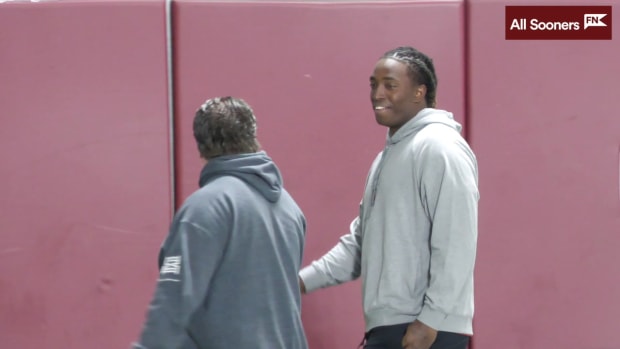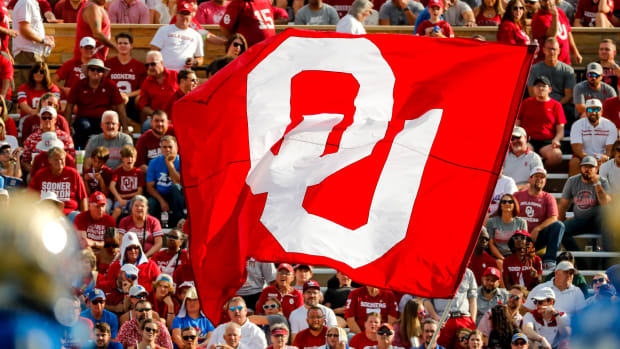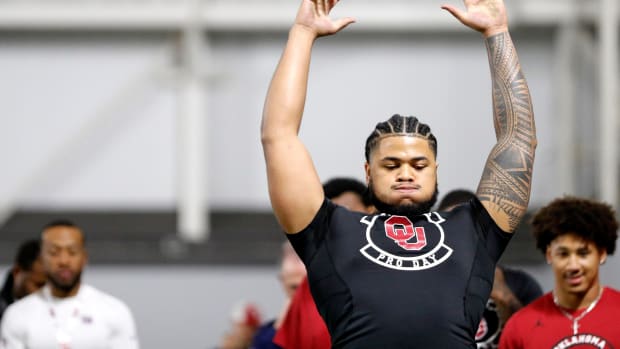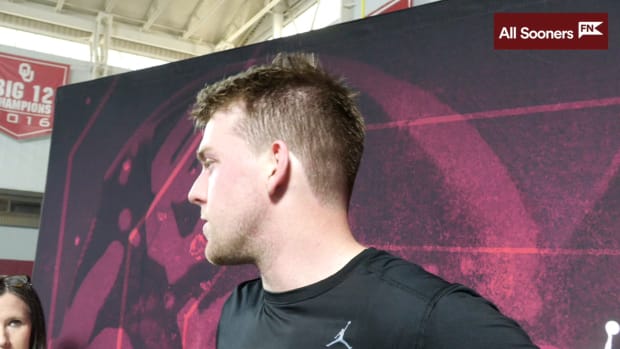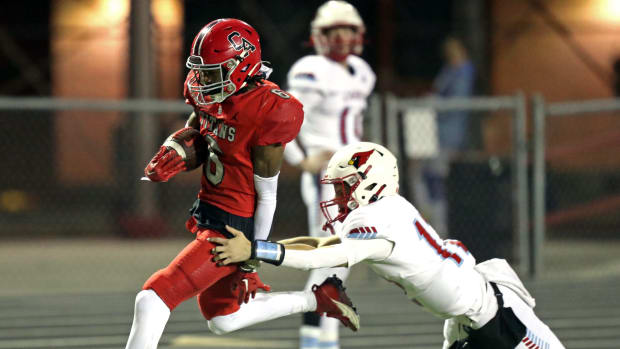Oklahoma's Lincoln Riley has concerns about transfer portal 'tampering'
Oklahoma has lost its share of players through the NCAA Transfer Portal.
But the Sooners have plied the portal as well as any college football team in the nation, too, this year alone pulling two starters and a key reserve from Tennessee, a starter from Arizona and a promising dual-threat quarterback from Penn State.
But OU coach Lincoln Riley “definitely” has concerns about teams “tampering” with players from other schools by using the transfer portal as an inducement to leave.
“Is it happening? Is it a concern? Of course,” Riley said. “It’s no different than people that cheat in recruiting. We all know it’s going on. You wish more people would get caught. You wish it didn’t happen. But to duck our head in the sand and pretend like it’s not — it is.”
The rules say schools aren’t allowed to recruit players from other schools who are currently on scholarship. That’s hard and fast.
The rules also say once a player requests entry into the transfer portal, his school has two business days to comply.
Once entered into the portal, that player can be contacted by any other school.
There’s not much gray area, other than perhaps intermediaries or detached third parties feeding players — or their families, or their friends — ideas about where they might find more playing time if they would only enter their name into the portal.
Just using Oklahoma as an example, once Wanya Morris committed to OU, he’s allowed to tell his friends back in Knoxville how wonderful Norman is and suggest how many games they could win playing together.
And one of Brendan Radley-Hiles’ best friends growing up was T.J. Pledger, who hit the portal last month and transferred to Utah. What’s to stop him from calling his old pal and suggesting they join forces one last time in Salt Lake City?
That’s no different than all the player-to-player communication that happens in regular recruiting. As long as college coaches or staff are not involved, players talking to players is open season.
Riley said Wednesday during a National Signing Day video press conference that stronger rules need to be in place — and enforced — to prevent coaches or staff members from tampering with players on college football rosters.
“Especially when the majority of guys that we'll sign here out of high school are, for the most part, pretty heavily recruited players,” he said. “I think we already have a little bit, but hopefully we keep strengthening the penalties for that happening. I think you’ve got to educate your players, and then I think the big thing is just, again, goes back to your culture. I think if you’ve got a culture and a program that players want to be part of, and they see opportunities with, then I think you can withstand those types of things.”
As with every new NCAA rule, there are unintended and unforeseen consequences that must eventually be addressed within the association’s legislative process.
And with every new NCAA rule, there will be those who push the boundaries, trying to find a loophole. And once those loopholes are addressed, they’ll find other areas to push. It’s the nature of trying to stay one step ahead of the rules.
The seedy nature of recruiting is alive and well, even if it lives under a new roof we now call the transfer portal.
“Hopefully on both ends of that, we’ll continue to strengthen rules,” Riley said, “and people that are gonna do that, hopefully we can make it to a point where if they wanna do it, that's fine, but they're risking everything.”
